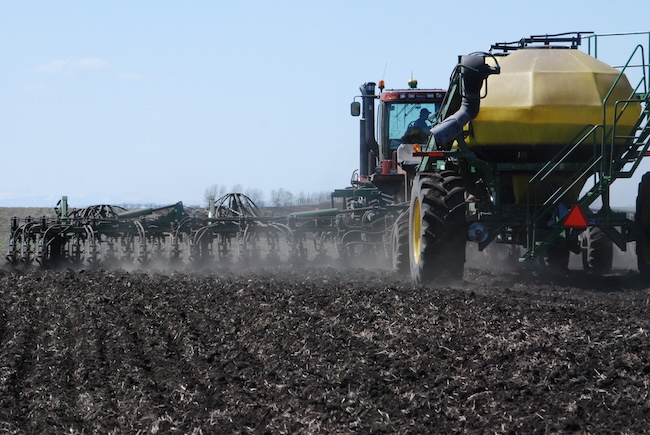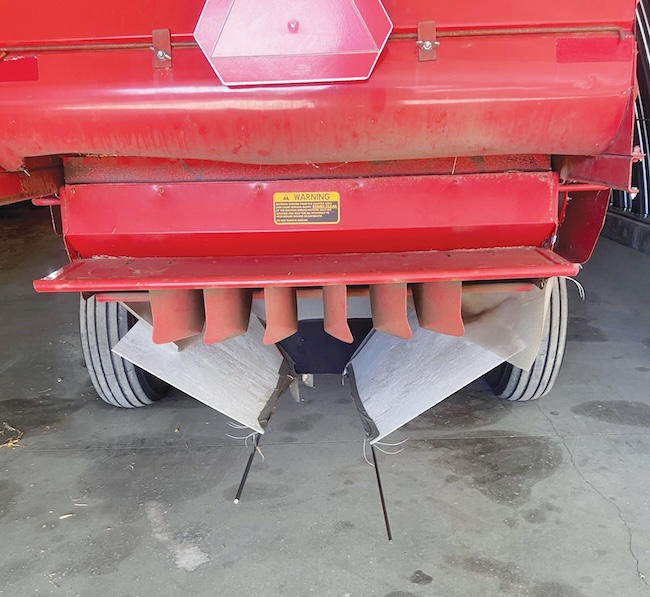| |
| |
| |
 |
|
@{mv_date_MMM d, yyyy}@ |
| |
|
| |
The weather is warming up in some regions across the Prairies and - while there's a lot to read today about trade and the upcoming federal election - seeding will go ahead. This week, read the latest research on ideal seeding rates for spring wheat.
- Kaitlin Berger, west editor
|
|
| |
|
| |
 With escalating tariffs from both the United States and China, Grain Growers of Canada echoes concerns that farmers are facing mounting pressure.
» Read more...
With escalating tariffs from both the United States and China, Grain Growers of Canada echoes concerns that farmers are facing mounting pressure.
» Read more...
Brought to you by Koch Agronomic Services
From nutrient protection to seed enhancement, it’s crucial to stay up to date on the latest studies and trends happening across the ag industry. Explore resources and discover tailored solutions for your operation’s needs.
» Read More...
Following China's imposed tariffs, the Government of Canada announced AgriStability support.
» Read More...
Prior to the federal election, Grain Growers of Canada is launching a national campaign to Vote for Grain.
» Read More...
Agmatix is partnering with BASF to develop a digital solution for detecting soybean cyst nematode.
» Read more...
Nuffield Canada will accept a new intake of scholar applications from April 1.
» Read More...
|
| |
|
| |
 How much spring wheat do you seed per acre? A bushel? A bushel and one-half? Throw that old notion out and think plants per square foot. Current Saskatchewan recommendations are 21 to 27 plants per square foot (215 to 275 plants/m2). But a research study looked at if there is opportunity to fine tune those rates further, evaluating the ideal seeding rate for spring wheat under various environmental conditions.
» Read More...
How much spring wheat do you seed per acre? A bushel? A bushel and one-half? Throw that old notion out and think plants per square foot. Current Saskatchewan recommendations are 21 to 27 plants per square foot (215 to 275 plants/m2). But a research study looked at if there is opportunity to fine tune those rates further, evaluating the ideal seeding rate for spring wheat under various environmental conditions.
» Read More... |
| |
 As an entry level harvest weed seed control (HWSC) program, chaff lining is an affordable, alternative tool to help manage the weed seedbank. Research in Australia, where HWSC was pioneered, found that a chaff line can create environments favourable for seed survival while still restricting weed seedling emergence, and that chaff lining is the ideal initial HWSC system for growers to begin adoption. Research in Canada looked into its potential on the Prairies.
» Read more...
As an entry level harvest weed seed control (HWSC) program, chaff lining is an affordable, alternative tool to help manage the weed seedbank. Research in Australia, where HWSC was pioneered, found that a chaff line can create environments favourable for seed survival while still restricting weed seedling emergence, and that chaff lining is the ideal initial HWSC system for growers to begin adoption. Research in Canada looked into its potential on the Prairies.
» Read more... |
| |
| |
|
| |
|
|
| |
| |



